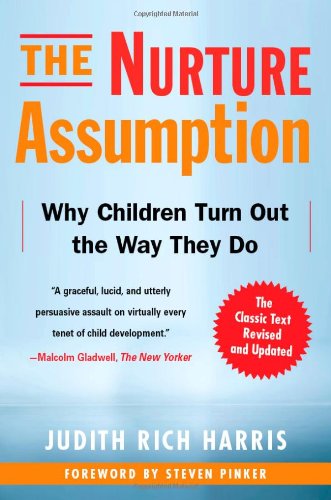
The Nurture Assumption
Why Children Turn Out the Way They Do
کتاب های مرتبط
- اطلاعات
- نقد و بررسی
- دیدگاه کاربران
نقد و بررسی

December 29, 1997
Harris, author of a college-level textbook on child development, offers a contribution to the increasingly popular trend to absolve parents from feeling responsible for the rearing of their children. The inability of psychologists to demonstrate that parents have predictable effects on children, it is argued, vitiates the long-standing assumption of parents' crucial role in children's personality development. While the author's skepticism of the view that parents' behavior produces necessary and direct effects on children is itself well founded, her counterpoint to the "nurture assumption" is not. Rather than attempting to examine the evident complexity of parental influence on children, the author instead avoids the problem altogether, asserting that one must recognize "that children learn separately, in each social context, how to behave in that context." By consequence, the primary influence on a child's social development, Harris asserts, is not the family setting (in which the author thinks children merely learn how to behave toward other family members), but rather the peer group. Pleasant as this theory may be to some parents, this book contains not a shred of empirical research to support it. What substitutes for research are numerous anecdotes and pages of opining. Here, for example, is one of many personal observations the author uses to bolster her own argument: "I believe high or low status in the peer group has permanent effects on the personality. Children who are unpopular with their peers... never get over that. At least I didn't." While this kind of evidence is unlikely to sway the critical reader, it will undoubtedly find favor among those parents who, like the author, find in this book's thesis a kind of self-fulfilling prophecy, which will mitigate guilty feelings about how they treated their children--feelings that, as the book implies, need not be analyzed. First broadcast to 20/20. BOMC alternate, QPB selection.

























دیدگاه کاربران